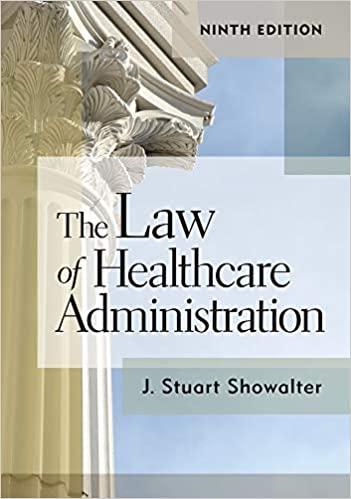The narrow issue in this case requires this Court to decide the constitutionality of a law passed
Question:
The narrow issue in this case requires this Court to decide the constitutionality of a law passed by the Legislature that directly affected Theresa Schiavo, who has been in a persistent vegetative state since 1990. This Court, after careful consideration of the arguments of the parties and amici, the constitutional issues raised, the precise wording of the challenged law, and the underlying procedural history of this case, concludes that the law violates the fundamental constitutional tenet of separation of powers and is therefore unconstitutional both on its face and as applied to Theresa Schiavo. Accordingly, we affirm the trial court’s order declaring the law unconstitutional.
ANALYSIS We begin our discussion by emphasizing that our task in this case is to review the constitutionality of chapter 2003-418 [Terri’s Law], not to reexamine the guardianship court’s orders directing the removal of Theresa’s nutrition and hydration tube, or to review the Second District’s numerous decisions in the guardianship case. Although we recognize that the parties continue to dispute the findings made in the prior proceedings, these proceedings are relevant to our decision only to the extent that they occurred and resulted in a final judgment directing the withdrawal of life-prolonging procedures.
The language of [the statute] is clear. It states in full:
Section 1. (1) The Governor shall have the authority to issue a one-time stay to prevent the withholding of nutrition and hydration from a patient if, as of October 15, 2003:
(a) That patient has no written advance directive;
(b) The court has found that patient to be in a persistent vegetative state;
(c) That patient has had nutrition and hydration withheld; and
(d) A member of that patient’s family has challenged the withholding of nutrition and hydration.
(2) The Governor’s authority to issue the stay expires 15 days after the effective date of this act, and the expiration of the authority does not impact the validity or the effect of any stay issued pursuant to this act. The Governor may lift the stay authorized under this act at any time. A person may not be held civilly liable and is not subject to regulatory or disciplinary sanctions for taking any action to comply with a stay issued by the Governor pursuant to this act.
(3) Upon issuance of a stay, the chief judge of the circuit court shall appoint a guardian ad litem for the patient to make recommendations to the Governor and the court..............
Discussion Questions
1. Be prepared to describe the religious, political, and sociological factors that may have influenced this drama.
2. On what grounds, if any, might Congress have jurisdiction over these types of issues?
3. If this kind of case were to arise at your healthcare facility, how might you attempt to avoid this lengthy, contentious, and expensive conflict?
Step by Step Answer:






